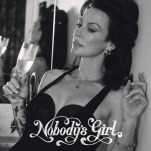The 10 Best Albums of October 2018
Photo by Mike Coppola/Getty
With year-end list season fast approaching, October saw the release of several standout albums that could very well end up on those best-of lists. One of the most anticipated pop releases of 2018 arrived in the form of Robyn’s Honey—her first LP since 2010’s Body Talk. Another fierce veteran female artist, Cat Power released Wanderer—her first album in six years. John Lennon’s classic 1971 LP Imageine was remastered and reissued for a new six-disc set. Plus, Big Thief’s Adrianne Lenker unexpectedly dropped her second solo release, abysskiss, one of the most beautiful acoustic records you’ll hear this year.
Here are the 10 best albums of October, according to Paste’s music critics.
10. Phosphorescent: C’est La Vie
Rating 8.2
Since Muchacho, Matthew Houck fell in love, got married, moved from New York City to Nashville, became a father, nearly died in a bout with meningitis and built his own studio, by hand, from the ground up. That’s a lot of major life events to pack into a half-decade, so it’s no surprise that he sounds like a different man on his new album C’est La Vie. His fine-grit tenor is still perfectly raspy, and his songs still hang effortlessly near the border between barstool country and warm-glow pop, with Houck’s experimental streak interloping into both territories. This is still Phosphorescent. It’s just that the man behind the wheel is older and a little bit wiser these days. “There From Here” wraps the revelation of clarity in a gentle sway of burbling organs. “Around the Horn” is hazy and hopeful, and it stands out thanks to its fuzzy motorik groove and sumptuous coda. “My Beautiful Boy” is a sweet love song for Houck’s son, streaked with pedal steel guitar and textured with hand percussion. And on “New Birth in New England,” Houck’s band, which includes wife Jo Schornikow, showcases its gospel-pop-rock chops as its leader takes a few minutes to unwind with some lines about the miracles of beer and childbirth. Houck sounds bemused but happy, like a man still learning to navigate and appreciate a whole new existence. No doubt, his beautiful and affecting music will grow with him—and help guide him. —Ben Salmon
9. Keller Williams: Sans
Rating 8.2
It’s always been a challenge to pin Keller Williams down. Beholden to no one specific genre, he’s veered from folk to funk, rock to reggae, with hints of bluegrass, electronica, jazz and jam band drive tossed in between. He’s also adept at playing all the instruments in his arsenal, adding loops, phasing and other effects when mandated by the music. It’s little surprise then that Sans finds him venturing into new terrain yet again. The title refers to the fact that the album is mostly free of vocals, an instrumental album that finds him indulging his penchant for intrigue and experimentation. It’s characterized by a series of twists and turns, from the kinetic pulse of “Fat B” with its sinewy groove, prominent bass and brass-infused accompaniment to the hypercharge and chant of “Newness” and the celebratory sounds of “Gracious Leo” and “Sheebs.” Many of the entries shift gears repeatedly; the sprightly “Ticks When Told” stalls once the groove deeper, while “Roshamboagogo” starts off triumphantly only to change its tune midway through. Nearly all the tracks are re-imagined versions of earlier efforts that never quite reached fruition. More soundscapes than songs, Sans offers Williams opportunity to retune his template and vary it accordingly. Both facile and frenzied, Sans is another satisfying addition to Williams’s remarkable repertoire. —Lee Zimmerman
8. Jim James: Uniform Clarity
Rating 8.2
In some respects, the fact that Jim James followed his solo album Uniform Distortion with Uniform Clarity, a collection of stripped-down takes on the material from that previous full-length seems backwards. While those who were dumbstruck by the atmospheric clutter of that initial effort might find some respite in the acoustic framework of its successor, there’s also a chance that they would have preferred to hear the skeletal set-up first. After the discordant tones offered by Distortion would those who were overwhelmed want to gamble on a follow-up, whatever its promise? Maybe not. Once someone is smacked in the face, it’s unlikely they’d want to face that possibility again. Distortion was meant to echo the chaos and cacophony of these tumultuous times while Uniform Clarity is intended as a means of taking an opposite tack, to provide some insight, and presumably some assurance as well. This time around, the 11 songs that graced the initial disc, along with two new tracks, provide a serene counterpoint, one that coaxes the listener along and shares some sentiment along the way. “It always comes with a twist, in a way you never could have guessed,” James coos on “It Will Work Out,” summing up succinctly any interplay that might remain between both albums. He’s right of course, and in the case of these conjoined efforts, that lyric might just say it all. —Lee Zimmerman
7. John Lennon: Imagine – The Ultimate Collection
Rating 8.4
The new remaster and reissue of John Lennon’s second studio album Imagine comes around at an unusual time. The six-disc set (four CDs and two Blu-ray discs) comes mere weeks before the much ballyhooed deluxe re-release of The Beatles’ “White Album,” and it is three years out from being tied into the 50th anniversary of its original issue. The impetus for this Ultimate Collection seems to be the unearthing of a raw demo of the title track, found two years ago. The piano and vocals only run through “Imagine” is worth revisiting, as it is Lennon at his most open and yearning. It is, in some ways, a better rendition than the hugely successful version that was released as a single a month after the album dropped. With no concerns about getting a perfect vocal take for posterity, he lets himself get a little scratchy and sharp, elements that bring out the aching earnestness of his hopeful lyrics. Was that worth the expense paid to remix the album, tracks from singles that Lennon and wife Yoko Ono released around the same time and assorted outtakes for 5.1 surround sound and Quadrasonic 4.0? Not really. The album is not as rough and in-the-moment as his previous solo endeavor John Lennon/Plastic Ono Band, but it’s not as sonically adventurous as his work in The Beatles or the efforts of Imagine’s producer Phil Spector. —Robert Ham
6. Adrianne Lenker: abysskiss
Rating 8.5
Big Thief singer Adrianne Lenker excels by tapping into the core of the human soul in the most tender, gentle and vivid way possible and her new solo LP, absysskiss, is no exception. Through just vocals, acoustic guitar and intermittent keyboards, Lenker conjures up something magical and weighty with so few elements. The 10 songs that make up abysskiss toggle from intoxicating love to somber grief and it spans many feelings in between. Lenker uses nature metaphors to tackle heavy subject matters like mortality, love, birth, friendship and youth, but she doesn’t hide behind these metaphors. She uses them to boil down complex topics into something familiar, immediate and sentimental. The album’s two singles, “Cradle” and “Symbol,” are highlights with the candid, understated beauty of the former and the haunting, hypnotic mysticism of the latter. Fans of Big Thief should latch on to this record as Lenker’s evocative storytelling, oneness with nature, unique vocal tones and her ability to arouse grandeur from the mundane are all apparent on this record. Lenker has proved herself to be one of the most captivating songwriters, not just in indie-folk, but of the present day. Providing newfound comfort and warm familiarity, abysskiss is a record that will quickly find its way into your heart and slowly caress your soul. —Lizzie Manno
5. Gregory Alan Isakov: Evening Machines
Rating 8.6
It makes all the sense in the world that Gregory Alan Isakov owns and tends a farm on Boulder, Colorado’s outskirts when he’s not touring. He’s a man who appreciates the peace of mind one finds only in nature; “Nature is a reference point for sanity, I draw a lot from it, just like every other living thing,” he mentioned in an interview back in 2016. You get the sense of his ideology listening Evening Machines, his latest album, a piece of work written in the language of the natural world. Isakov strikes as too humble to claim fluency in that language, but he’s well versed enough. Environmental imagery peppers the album, from the earth beneath us all the way up to the galaxy. “Those bright crooked stars, man they’re howlin’ out,” he muses on the record’s closing track, “Wings in All Black.” The sky is a recurring image throughout Evening Machines, as seen in the title of “Wings in All Black,” the lyrics of “Caves” (“I used to love caves / Stumble out into that pink sky”), or the lyrics of “Dark, Dark, Dark,” where he sings about Maria, who’s “got wings, she’s got legs for the sea.” Maybe Isakov has destinations in mind other than the open plain; maybe he’s a drifter, or a bit of a loner. The album cover hints at the truth, depicting Isakov keeping vigil among fields of grass, staring ahead at a gathering storm, but even so he remains an elusive, almost capricious figure. He likes his quiet, and he’s clearly prone to reflection, but in Evening Machines he finds himself at home, contemplating his past and present in modest spirit. It’s an album of small intentions with a grand sweep, intimate and boundless at the same time. —Andy Crump
4. Miya Folick: Premonitions
Rating 8.6
After releasing two EP’s—2015’s Strange Darling and 2017’s Give It To Me—Los Angeles singer-songwriter Miya Folick has shared her debut album in the form of the starkly titled Premonitions, which is characterized by her jaw-dropping vocal range. Her larger than life vocals derive, in part, from her classical training, but she also has the kind of pipes that just don’t seem teachable. On songs like “Stock Image” and “Thingamajig,” she exhibits an otherworldly, operatic beauty, while on “Freak Out” and “Cost Your Love,” there’s a bouncy, sugary and simple joy marked by frenetic synths, grounding guitars and spry percussion. Even the largest songs have a clear sense of intimacy while introspective tracks like “Baby Girl” and “What We’ve Made” are distinctly grand. A lyric from “What We’ve Made” is a perfect metaphor for the album. She sings, “We make tiny happinesses in each moment,” which is exactly what this record feels like. She handcrafts everyday situations into something angelic yet relatable and celebratory yet poignant. Her appeal extends well beyond the realms of pop as there’s a distinct, developed lyrical voice and a dynamic, extraordinary literal voice that makes 2018 feel much less scary and isolating and much more pure and magical. —Lizzie Manno
3. Haley: Pleasureland
Rating 8.7
“People are complicated, and I am no exception!” This was the crux of multi-instrumentalist Haley McCallum’s statement in regards to her latest album, Pleasureland—an expectation-bucking, all-instrumental release she felt moved to do after the success of 2016’s Impossible Dream. A composer, producer, writer, guitarist, keyboard player, pianist, teacher, and mother, McCallum—formerly known to the music world as Haley Bonar—decided to shine a light on other aspects of her artistry, leaving the power-pop and barbed, lyrical observations she has become known for, behind. Stark, melodic, layered, and emotion-filled, Pleasureland feels like a step-out of time—a meditation—a moment taken for oneself to reflect. As you listen to the inherent beauty of her piano-based compositions, your own thoughts and interior world feel reflected back at you as you drift from track to track. Even in Pleasureland’s most idyllic moments, a layer of subconscious unease remains—the one exception being the drop-dead gorgeous “Next Time (For C)” which is beauty and romanticism and its finest. Trickling, agile piano—reminiscent of the most poignant works of Emahoy Tsegué-Maryam Guèbrou—mixes with strings and air for the most romantic, lilting, and light moment of the album. Pleasureland is an unexpected turn for McCallum, but an interesting exercise in autonomy and expectations. The result is a slight 27 minutes that manages to contain worlds—of emotion, texture, and feeling. No words needed. —Madison Desler
2. Cat Power: Wanderer
Rating 8.7
Chan Marshall, who records under the alias Cat Power, boasts more musical prowess than many singer-songwriters would even know what to do with. In fact, after nine gleaming LPs, she almost stopped doing anything with it—she told The New York Times that after getting pregnant in 2014, she thought about abandoning her music career to move to Australia and change her name to Beth. Instead of fulfilling those outback fantasies, Marshall went back to work. The result is her 10th LP, Wanderer, a marvelously minimalist, generously arranged and smartly written glance into one woman’s mind. Raw and trusting, Cat Power opens up on Wanderer in ways only a practiced and weathered musician could. “Horizon” is nestled at Wanderer’s burning core, a warmly composed, barely tweaked familial love song. Here, Marshall lovingly bakes in some AutoTune, an unexpected but welcome treat. Marshall allows Wanderer to be about lots of things at once: such life-altering instances as motherhood and death as well as plentifully covered topics like love and relationships. Cat Power has stumbled at times during her lengthy and storied career, but on Wanderer, she gracefully lands on all four feet. —Ellen Johnson
1. Robyn: Honey
Rating 9.0
No one serves up catharsis quite like Robyn. Whether you need to hysterically sob or gleefully and blissfully “move your body” across a dance floor, the Swedish pop diva’s Honey is there to satisfy. Remarkably accessible, Robyn’s long-awaited follow-up to her Body Talk trio is the purest purge. It baptizes you with tears or sweat or both, bidding the promise of a deep cleanse. The only faucet necessary is a pair of headphones, or—better yet—a team of pulsing, surround-sound speakers. Honey dives right in with the heartbreaking-yet-lustrous “Missing U,” the record’s first single and a truly prismatic display of discoteca synth. “Human Being,” follows it, building on disjointed 80s dance beats as Robyn pleas, “Don’t give up on me now.” Thumping groove-track “Because It’s In The Music” is a testimony to the power of disco and dance, and it will shake you to your very core, whatever “it” is for you. Honey is a near-flawless dance pop album. It doesn’t need political or cultural commentary to assert relevancy; in Robyn’s deep understanding of human emotion and what moves us, Honey feels dire all the same. Release through dance has long been a tactic wielded by humankind, but rarely has it felt this inclusive, kind and positively radiant. —Ellen Johnson







































